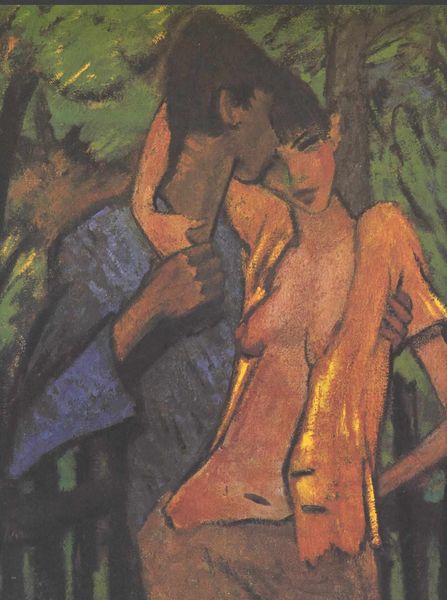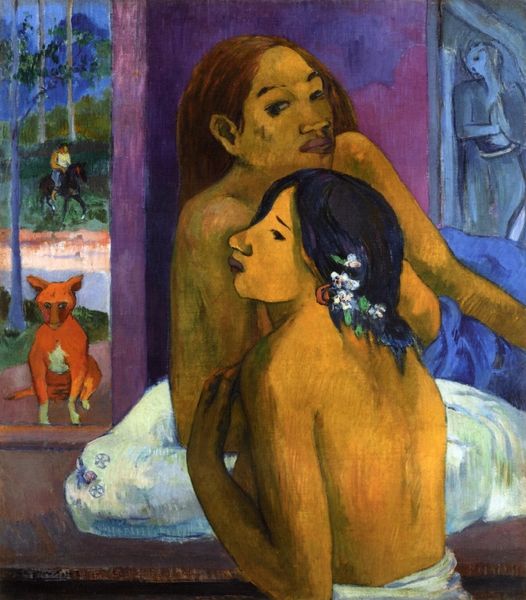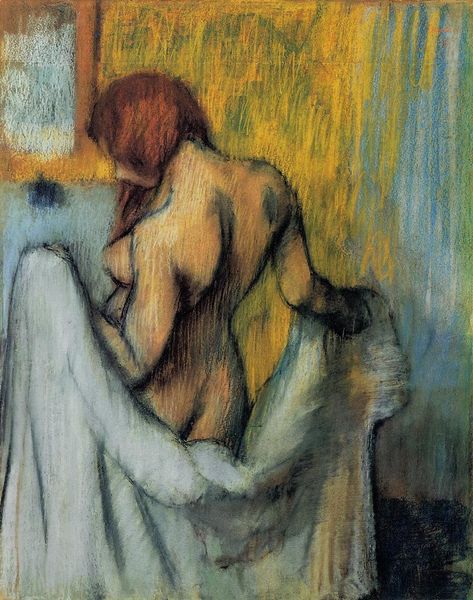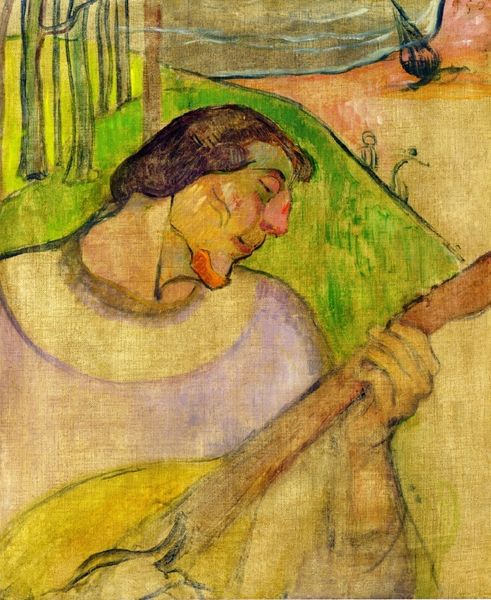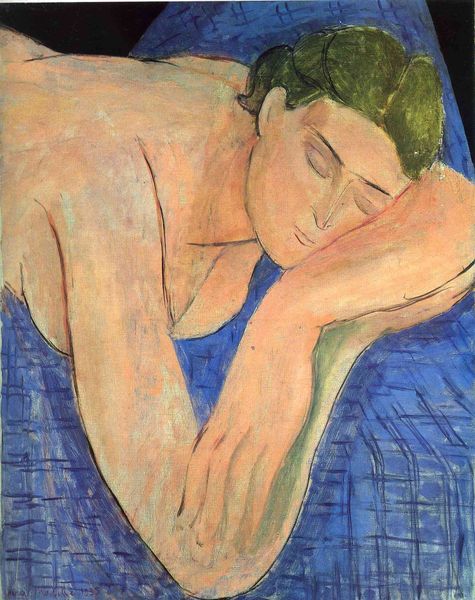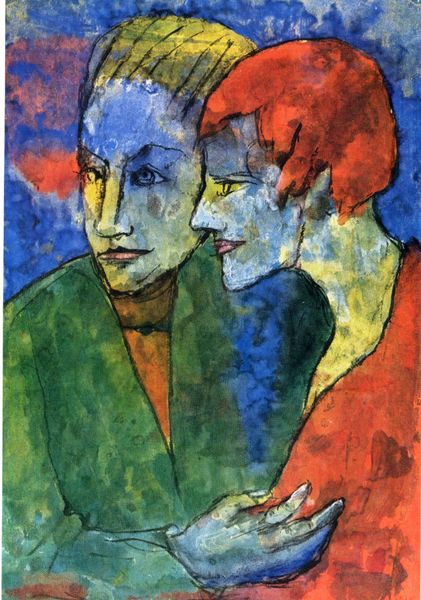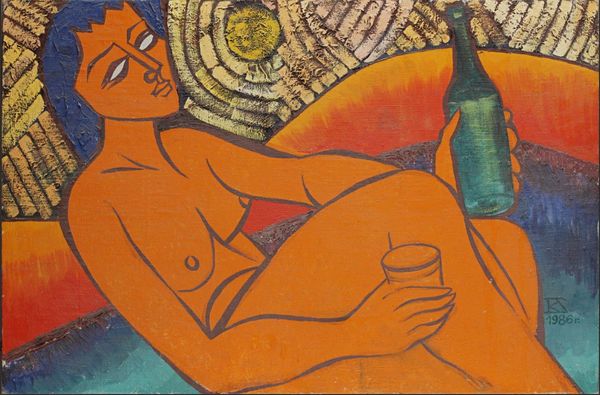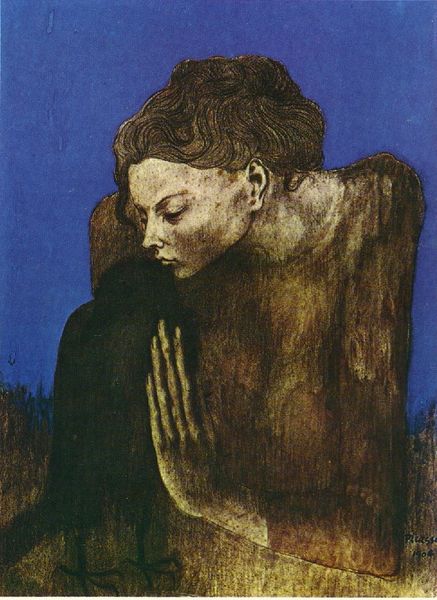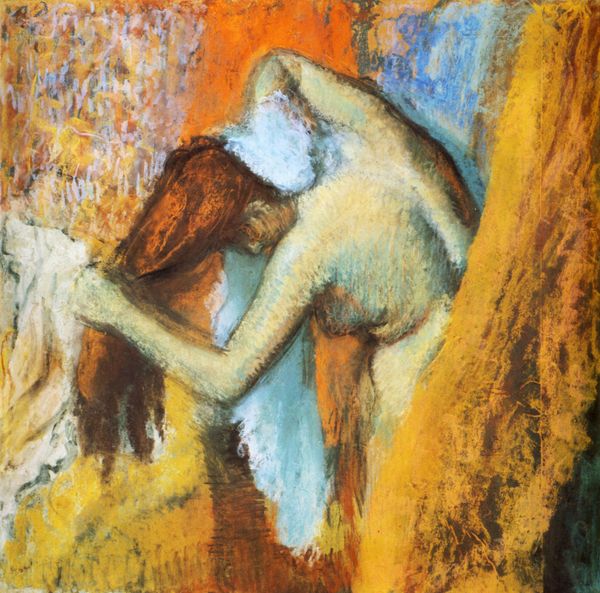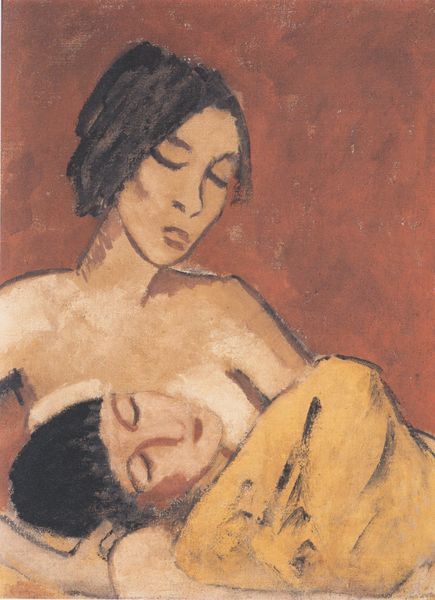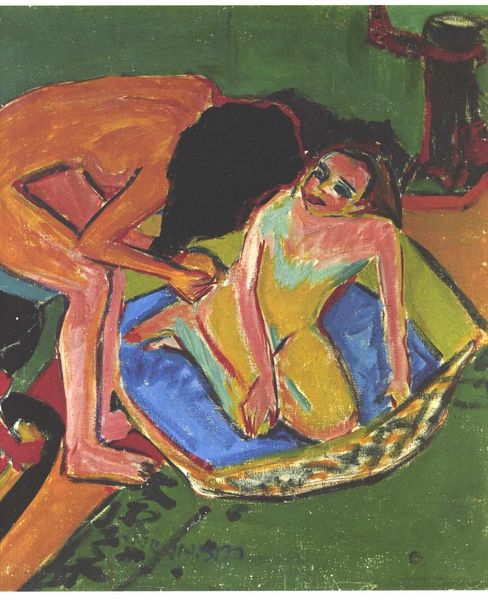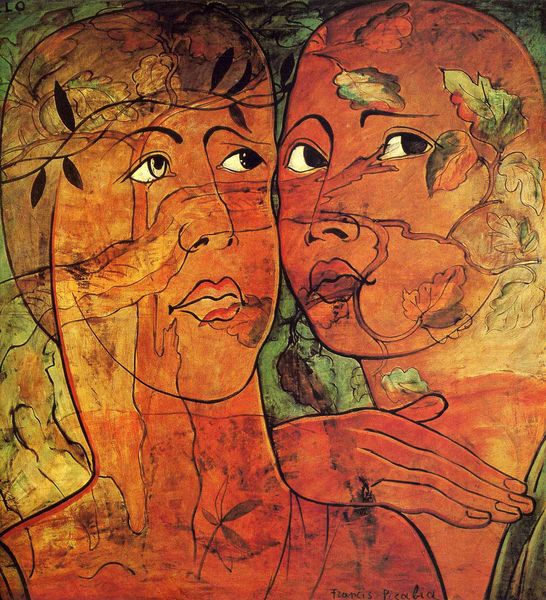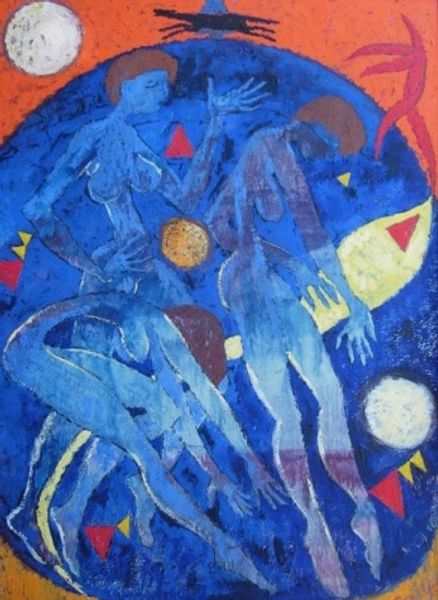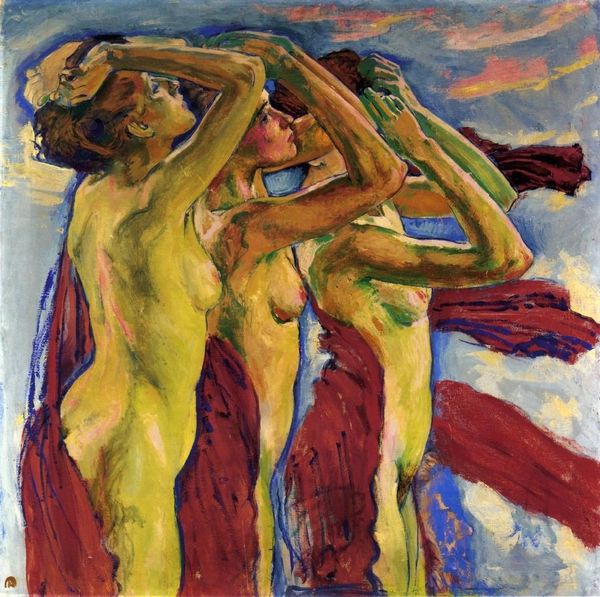
painting, oil-paint, impasto, frottage
#
portrait
#
painting
#
oil-paint
#
landscape
#
oil painting
#
impasto
#
naive art
#
post-impressionism
#
portrait art
#
frottage
Dimensions: 33.2 x 24.8 cm
Copyright: Public domain
Editor: Here we have Paul Gauguin’s "Negreries Martinique" from 1890, made with oil paint. The intense blues immediately strike me; it feels both dreamlike and slightly unsettling. What do you see in this piece? Curator: Indeed, the blue is pervasive. I’m drawn to how Gauguin uses color and form to evoke a sense of the exotic, yet the title itself raises questions about representation and the gaze. Consider how he uses "Negreries," a term laden with colonial history, and then juxtaposes it with the specific location, "Martinique." It highlights a tension, doesn't it? Are these figures observed, idealized, or something in between? Editor: That's a powerful point about the title itself. I hadn't considered its historical weight. The figures, especially with their skin tones, seem less realistic and more symbolic. Curator: Precisely. Look at the symbolic implications embedded in those color choices. The blue, for example, does it speak to serenity or perhaps melancholy? What feelings or cultural associations does the contrasting yellow evoke when paired with blue? It becomes a question of cultural memory being shaped by artistic interpretation. Editor: So it's about more than just a portrait; it’s about the cultural baggage that comes with seeing these figures within a colonial context. It’s unsettling, like you said. Curator: Exactly. And what of the obscured faces, and the visible brushstrokes and deliberate naivety in his artistic rendering? All this leads to deconstructing assumptions tied to exoticism. The symbols here resist easy categorization. Gauguin prompts a larger question: how can one approach representation with respect for the complexities of identity, memory and history? Editor: I'll definitely think differently about Gauguin's choices now, especially how he is playing with representation and symbol. Curator: And how even seemingly simple visual choices contribute profoundly to cultural understanding.
Comments
No comments
Be the first to comment and join the conversation on the ultimate creative platform.
